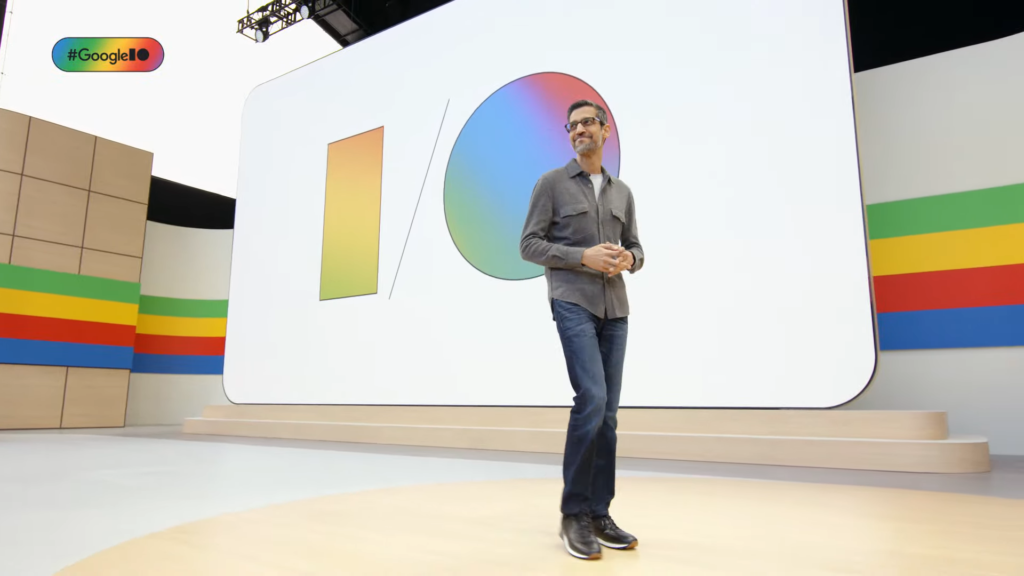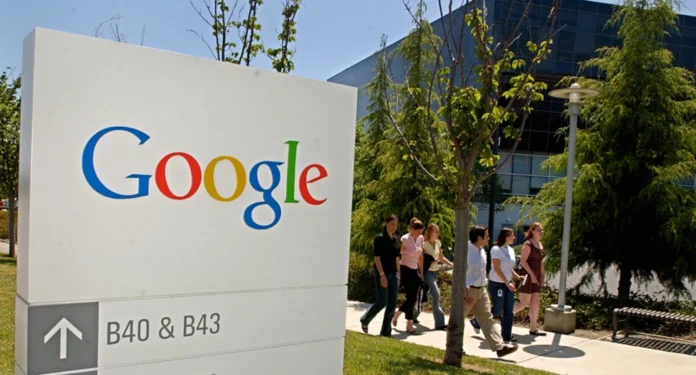Google’s I/O, the major technology company, made several exciting announcements at its annual developer conference at the Shoreline Amphitheater in Mountain View, California. AI took center stage as Google unveiled a range of innovative new products.
Alphabet (NASDAQ)
Annual developer conference took place on Tuesday (May 14). The event showcased Google’s engineering team’s latest advances in artificial intelligence (AI), with a focus on Gemini, Google’s AI assistant, and other AI-driven products and features.
Read on to discover five key takeaways from the event.
Good News for Pakistani Students as Google is Offering 45,000 AI Scholarships
1. Progress with the twins continues
The keynote presentation at I/O highlighted the enhanced version of Gemini 1.5 Pro, which features a 1 million token context window. The model was originally introduced as an experimental feature in February and will be available to developers worldwide via Gemini Advanced in June. The longer context window allows Gemini to analyze more data at once, improving its understanding of complex information.
In addition, Google announced a private preview of a larger Gemini 1.5 Pro model with a 2 million token context window and introduced Gemini 1.5 Flash, a smaller, faster AI model.
New AI features were also introduced for Google services. Improved Gemini interactions in Google Messages and the upcoming Gemini Live feature ensure a natural conversation experience. Users can interact with Gemini, choose from different voices and pause for clarification. Gemini Live will assist with tasks such as interview preparation and will integrate camera capabilities for ambient discussions later this year.
Google also launched Gems for Gemini Advanced subscribers, offering personalized AI experiences. Users can create custom versions of Gemini with specific roles such as “Gym Friends” or “Coding Partners,” which Gemini will use to generate tailored interactions.
In search, Google announced the launch of AI Overviews in the US, which deliver granular, paragraph-length answers based on multi-step reasoning. The new Ask Photos tool makes it easier to get information from personal photos. For example, it can identify your license plate by analyzing cars that frequently appear in your photos.
Google also introduced Search with Video, which allows users to ask questions and get detailed solutions by displaying a live video feed to Google. In one demonstration, a developer asked Google for help with her turntable, where Google identified the tonearm and provided troubleshooting instructions.
2. New AI features in Workspace
Google has integrated Gemini 1.5 Pro into several Workspace services and added features such as summaries in the side panel. This allows users to extract important information from rich content such as email threads and documents. For example, Gemini can summarize an email thread and generate a response.
NotebookLM’s AI-driven improvements improve usability and intelligence. It provides better context understanding and advanced natural language processing, allowing relevant context to be suggested more effectively. NotebookLM can also be broken, similar to OpenAI’s GPT-4o, which was introduced in the Spring Update on May 13th. NotebookLM acts as a private tutor and generates study guides, quizzes and audio overviews based on entered text material.
3. Deep Minds Project Astra Updates
Google’s Deep Mind team introduced Project Astra, an AI project that replaces Google Assistant. Astra captures video input and caches it chronologically to recall past events. Its capabilities are similar to those of GPT-4o, although Project Astra is not yet publicly available and is still being refined.
Deep Mind also launched AI-powered creative tools, including Imagen 3, an advanced image generation model. In collaboration with YouTube, Google Music launched AI Sandbox, a platform that provides creative support to musicians. Additionally, Google introduced Veo, an AI-powered video generation software capable of producing 1080p videos over a minute long.
4. Imminent arrival of Gemma 2
Google announced the arrival of Gemma 2, a new lightweight model based on the same foundation as Gemini. Gemma 2, a 27 billion parameter model, will run on NVIDIA’s (NASDAQ).
GPUs that deliver improved performance and efficiency on a single TPU host in Vertex AI. This will make Gemma 2 more affordable and accessible to a wider audience.
Google also introduced PaliGemma, an open vision language model available on platforms such as GitHub, Hugging Face, Kaggle and Vertex AI Model Garden.
5. AI integration in Android
Google will improve the Android experience with AI built into the device. For Pixel users, Gemini Nano with multimodality provides more detailed image descriptions and fraud alerts on phone calls. Later this year, Gemini Nano’s capabilities will be expanded to TalkBack, providing detailed image descriptions for blind or visually impaired users, even without an Internet connection.
Gemini on Android allows users to ask questions about videos and PDFs and use Circle to Search to isolate specific features in images.
Market reaction
Alphabet’s stock price has performed generally positively this year, despite a temporary dip due to lower-than-expected earnings in the fourth quarter. The company rebounded after a selloff in technology stocks on March 6 and is up about 25 percent year-to-date. On May 13, the stock opened lower amid rumors of a competing search tool from Microsoft (NASDAQ). and OpenAI, but recovered at the end of the day.
Alphabet was flat on Google I/O day, closing at $173.88 on May 15.
Visit Site





Very interesting subject, thank you for posting.Blog money